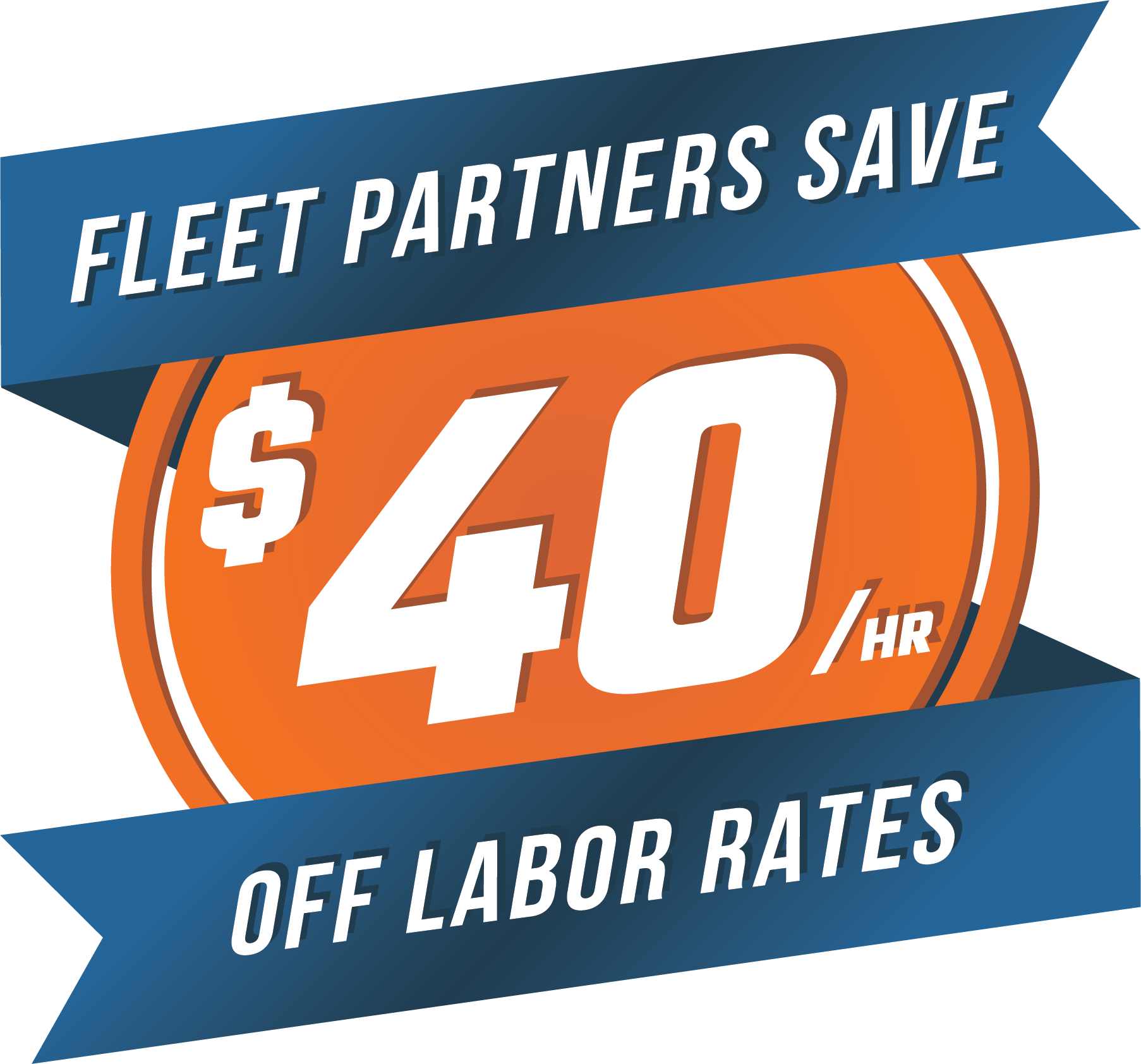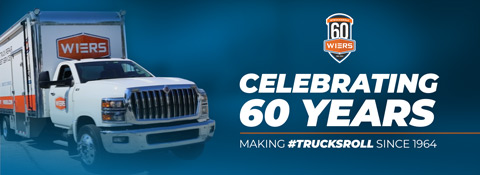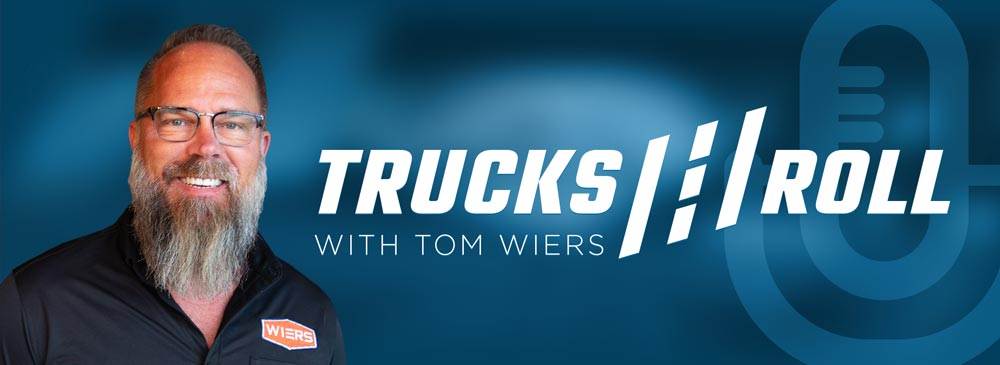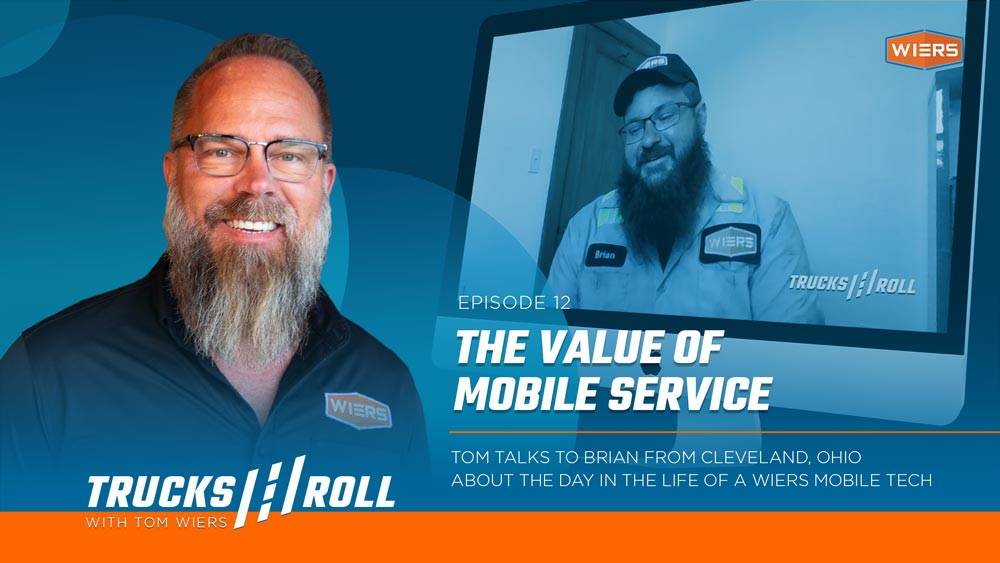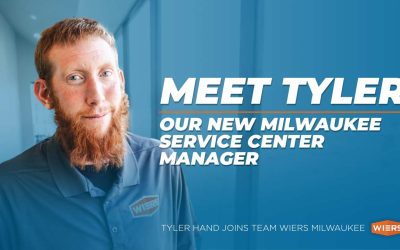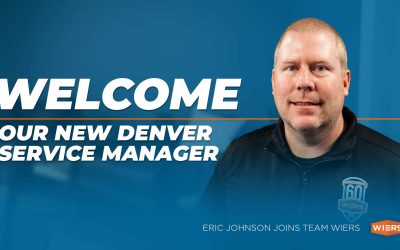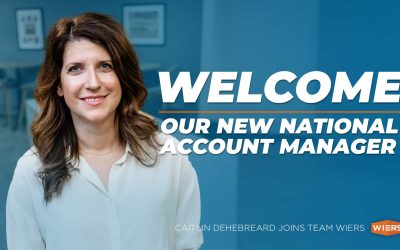
The Value of Mobile Service – Trucks Roll, Ep. 12
A Day in the Life of a Mobile Technician
Tom sits down with Brian Trout from the Cleveland, OH market of Wiers Mobile Technicians about what being a mobile tech is like, some of the misconceptions of the role, and the value our customers are finding in Mobile service.
In this episode you’ll learn:
- What it’s like to be a mobile technician
- Understanding some of the misconceptions about being a mobile tech
- How your fleet can benefit from a trusted partner who offers mobile service
Wiers is committed to keeping your trucks on the road with less hassle for your fleet. Find out what we’re doing to help you keep your trucks rolling with a Fleet Partnership Plan.
Here is the transcript for Trucks Roll Ep. 12:
Tom – Hi. Welcome to the Trucks Roll podcast. I’m Tom Wiers, and today I’m going to be talking to Brian Trout. Brian is a mobile technician for us in the Cleveland market, and the mobile platform is a growing part of our business. More customers are asking us to come to them versus them coming to us. So we’re going to talk to Brian, understand what an average day looks like for him, and get to understand why customers are increasingly looking for mobile minutes. So let’s get started.
Tom – Brian, it’s great to have you with us. Thanks for making time to to talk to us today.
Brian – Yes. Good to be here. It’s a cool opportunity.
Tom – There was a couple of things we want to talk about today and what we really want to start off with is your background. I know that you’re originally from the Cleveland area, but when I met you, you were working for us out of the Columbus shop, and so I wanted to bring the Wiers team up to speed about Brian Trout, your wife, and how you guys ended up in Columbus and what took you back to Cleveland.
Brian – I’m from up here, like you said. I met my wife when we were in college in Worcester, Ohio, and then that was a two year school. I graduated and she went down to Columbus to finish her degree. During school and for, I don’t know, two or three years after, I worked at a couple of places up here in the Cleveland area before going down to Columbus.
Tom – So you went to Columbus. I know you work for Rush, right?
Brian – Yup. So I ended up moving down there with her. Figured I wanted to try mobile for a long time. Found Wiers, started working for Wiers, actually my first question when I interviewed was if I hate this can I go into the shop or am I out of a job?
Tom – So then I just stuck. So I worked in the Columbus market for about two years and then wanted to get back up here. My wife graduated school. We ended up staying longer than we anticipated and all of a sudden Mike Dooley calls one day and says, Hey, I’ll take your van with you and try it out and see what happens. So been up here, about a year and a half now and you know, things are starting to really take off for us here. There’s a little bit of a rough start, but we’re going now.
Tom – So tell us, like when you were when you were a mobile tech in in Columbus market initially and it seems to me you built quite a rapport with with our customers and and help grow that grow that business fairly quickly for us.
Brian – Yeah. When I first started, it was kind of frustrating. I was basically a shop tech that worked out of a van, so I just back my van up to a bay every day and grab tools and it drove me nuts. So I just started. I would go to customer sites, you know, there was four or five customers in Columbus that kept me busy and their trucks never went to the shop. So I would I just went to random places that I knew were customers of ours and say, hey, I’m here. And, you know, they gave me a couple opportunities and it just turned into where they called me for everything.
Tom – Yeah, that’s that’s fantastic. Walk us through those early I guess the early period in Columbus, maybe that first 90 days, because we really didn’t have any work lined up for you. What was that like and how did we ultimately build the business in Cleveland to keep you busy and then even need a second technician?
Brian – So the first three months were rough. I continued to go to Columbus every Thursday and Friday.
Tom – I remember that.
Brian – Just to help fill the void when they hadn’t hired somebody yet or found a new mobile tech. And to keep the productivity going and really some sanity because outside of that Monday through Wednesday, I was just scouting and visiting people and getting DOT numbers off of doors to send to the sales team. And between me and Luke, we talked to them all the way up in the Cleveland market. Well, that wasn’t his area at the time that he was over. He got me in there and I started there.
Brian – They had ten trucks and ten trailers and they could only take one truck on the road every day because everything else was broke down. They had one or maybe one or two trucks they could use in the yard. But outside of that, I mean, they were in shambles. So that kept me busy Monday through Wednesday for a while, and then some of the scouting efforts came through. I had no idea how long it took from Hi we’re Wiers to, you know, actually turning a wrench and having a credit account created or whatever. But some of the scouting efforts started coming through. We got a couple more on contract. And it took from basically I started off here January one and it took until I would say May before we actually had something that, you know, I wasn’t worried that they were going to shut down Cleveland and, you know, they weren’t like, you know, you guys were seeing the numbers and it was looking the right way. And it was it went fast, too, because, you know, we got busy in May and November we hired Matt. So I mean, that was a pretty quick jump from nothing to something to needing two people.
Brian – One thing that I found working for workers and seeing customers come on contract and then you get them going is they need a lot of repair.
Tom – Yeah.
Brian – So you spent a whole lot of time hanging out with them and then it just kind of drifts away and then, you know, you get a new customer, you spend a whole lot of time over there getting your units up to par and then you drift off from them and not do you forget about them, but their units, you fill their units off to where they’re in a stable condition and you don’t have to go that often.
Tom – In my experience, Brian, that’s one of the the most challenging parts with the new customers. They come to us or they engage in a conversation because they have a problem. They’re not satisfied whether it’s downtime or whatever the issue might be. And a lot of it’s driven by deferred maintenance and repairs. They just haven’t been maintaining their equipment very well. So then we go in there and of course start addressing all the shortcomings. The bills reflect those those needs. And, you know, they get a little sticker shock like, oh, my goodness, is this going to this is the new norm for me.
Tom – Am I going to be spending this much month after month am. In my experience. And what we try to talk to customers is it depends. It depends on how bad the fleet is. But usually the first year is painful, but then second year it comes down, third year maybe it’ll even come down a little bit more.
Tom – Then it kind of evens out. If you do the proper maintenance, but getting those customers over that threshold that first year is really challenging, quite honestly.
Brian – It is.
Tom – And and you’re really good. One of the things I’ve always admired about you is you really good at building a relationship with the customer in a very personal take, you know, take interest and spend time with them. And as a mobile tech, I think that’s terribly important because, you know, you are the face of Wiers for those customers. There’s there’s no service advisor, there’s no service manager or anybody. They don’t walk into a store.
Tom – It’s just it’s just you. It’s Brian and a Ford Transit.
Brian – Yeah.
Tom – So, yeah. What do you think are some of the biggest misconceptions around that role?
Brian – We love to spend 24/7 on the side of vans so people automatically assume you’re just working like a dog. It’s not like that.
Tom – I think another misconception as well, and you touched base on this, but not only the inclement weather, it’s but also, you know, that’s you know, they call it 2 in the morning or 3:30 in the morning. And with the 24/7 slap on the side and, you know, that’s not necessarily the case.
Brian – No.
Tom – It’s usually more in the morning, the truck won’t start or, you know, later in the day. But I don’t think we feel we’re filling that many calls at 11:30 at night or 3 in the morning in those sorts of scenarios.
Brian – No, it’s it’s not a whole lot of those. And occasionally it is. But I would say it depends on the market, because in Columbus it was, we’ll say once a month up here. It’s been twice in the last year and a half I’ve been here.
Tom – The whole reason we started the 24/7 in Mobile was back when, you know, we really started doing agreements with customers. And what we didn’t want to do is sign a maintenance agreement. And then, you know, early on one morning, they couldn’t get a truck to start and they call our competitor because we don’t have somebody on on call. So the whole mobile thing we started back in 2012, Drew did a great job of of kind of spinning that up. And we were just had the dealerships, but it was really about taking care of our core customers when they needed us. You know, they needed us after 6:00 at night.
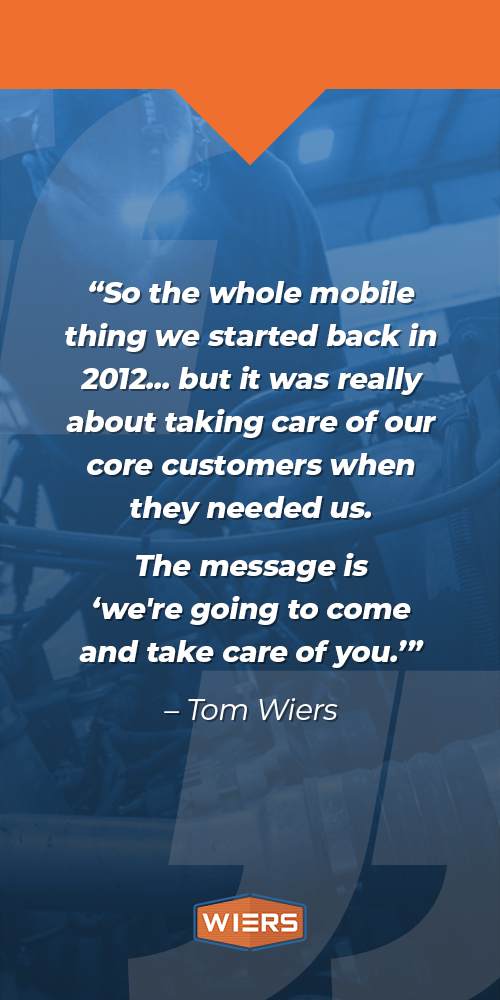
Tom – The message is we’re going to come and take care of where you need us early in the morning. Over time, you know, we started to do more road service off the interstate to fill in if we had capacity and such. And we still do that today. But it’s always been the core purpose of that is to take care of our local re-occurring repeat customers first and foremost. And what do you see looking to the future of the opportunity you see.
Brian – From the scouting we’ve done it. It seems like it’s a pretty easy market to sell into. It’s not nearly as mobile heavy as what I saw in Columbus. You know, you pull in a truck pro or a dealer and you see five or six other mobile trucks there, whether it’s a, you know, a Dickenson or just a go blow with a Econoline or whatever, there’s always a bunch. But up here, there’s not a lot. I actually had to call the dealer today about a service. About their service. Wait time in there at Freightliner up here. You’re looking at 6 to 8 weeks to get it.
Brian – So being able to be there is really good for us. We have a large area that we cover east to west. If we can’t go any further north unless we get in a marine service. But, you know, so basically the area where Matt lives and where I live and where a new chunk of our customers are coming into is just I want to keep expanding east to west, get a third tech further east and then jump into Matt’s territory so he’s closer to home and then maybe get somebody closer to me and start branching out a little south of me as well. That is a little bit of a market there.
Brian – So I think this area to handle 5 to 6 mobile tech.
Tom – That’s fantastic. And we are working on some acquisitions, as you and I discussed on Thursday. So hopefully we can get something in the Cleveland market sooner rather than later, because I think that would be great if we could have a, you know, some bricks and mortar and then have four or five or six mobile techs, I’d be a heck of a presence. We see that as a growing demand. Mobile. I was talking to a customer this is a few years back, but one of his comments was, you know, my guys work. This was a utility service provider. And, you know, I asked my guys all week long to work. And, you know, last thing I want to do on a Friday afternoon, just ask them to go from the south side of Indy up app to your shop on 465 in a traffic, you know, heavy traffic. And they’re basically they’re working overtime. So I’m paying them more. I’m asking them to be with their families longer. And so I just want you to come and take care of it. I’ll pay the extra. I don’t care.
Brian – Right.
Tom – And so, you know, there are all kinds of reasons why customers want that flexibility in their operations. And it’s great that we can provide that in the Cleveland market with you. And now Brian had also I want to make sure I don’t miss this opportunity that he coined a term on Thursday called what was it you remember? You said, “Wiersian.”
Brian – Oh, “Wiersians,” yeah. A couple of Wiersians traveling around.
Tom – Right, right, part of the Wiers team “Wiersian” so that was a new term that we want to make sure Brian Trout gets credit for it.
Brian – Absolutely.
Tom – So if I use that going forward, but pay a royalty or something to thank Brian. Well, Brian, I think this is a wonderful conversation. Exactly what I wanted to talk to you about. You talk about the Cleveland market success. We’ve had their new initiative. And, you know, it’s a real blueprint for us to do that in other markets. I think you’ve done a great job of touching base on those points, so I really appreciate you taking time out of your day to talk with us and appreciate what you do and Matt are doing force in Cleveland.
Tom – And Brian, thanks for your time. Appreciate all they do for Wiers. And let’s keep those trucks rolling.
Brian – So you appreciate it. Thank you.
Tom – Thank you for tuning in to the Trucks Roll podcast with Brian Trout. Hope you enjoyed as much as we did putting it together for you. If you’re a fleet looking for a mobile maintenance solution, please go to Wiers.com and look at our offerings. We’d love to talk to you and and support your business. And if you’re a technician, already a mobile technician or looking to become a mobile technician, go to Wiersdieselmechanicjobs.com. We’re growing, and we’d love to have you join our team. Thanks.
Links:
- Share your thoughts and connect with us on Facebook
- Check out more videos on Youtube
- Listen to Previous Episode
